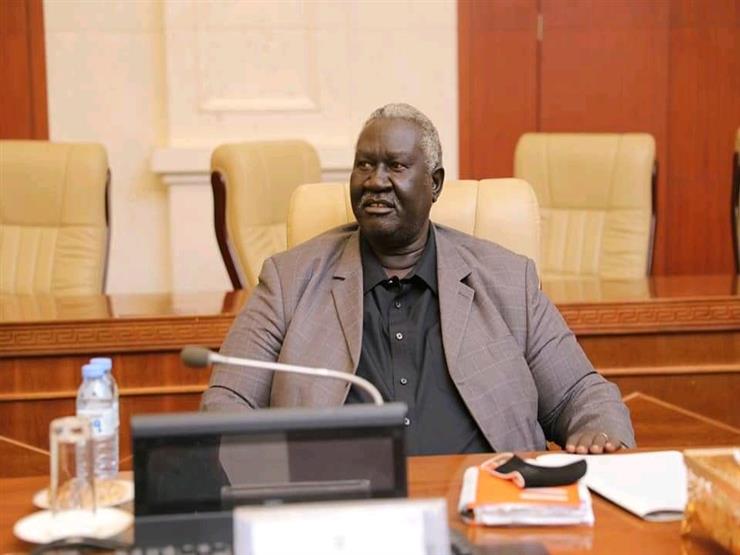متابعات سودان لايف نيوز – أكد مالك عقار إير، نائب رئيس مجلس السيادة الانتقالي، أن مؤتمر الخدمة المدنية السودانية يأتي في لحظة تاريخية حرجة ومفصلية بالنسبة للسودان، مشددًا على أنه يمثل فرصة ضرورية للتفكير العميق والتخطيط المسؤول، والعمل الجاد على إعادة بناء ما تهدم وإصلاح ما فسد.
وفي كلمته خلال الجلسة الختامية للمؤتمر، أشاد عقار بصمود الشعب السوداني في مواجهة التحديات الكبيرة التي فرضتها الحرب التي شنتها “المليشيا المتمردة” على مؤسسات الدولة والمواطنين، معتبرًا الشعب ركيزة أساسية للدولة في مواجهة الحرب والدمار الذي تنشره هذه المليشيا ومن يدعمها من “رعاة إقليميين”. وأشار إلى أن المؤتمر يمثل بداية مرحلة جديدة تهدف إلى ترسيخ دولة المؤسسات.
وشدد عقار على أن الحرب التي وصفها بأنها “عدوان منظم” تهدف إلى تدمير أسس الدولة السودانية وتفكيك مؤسساتها وضرب جهازها الإداري.
وأوضح أن تطوير جهاز الدولة الإداري يتطلب مكافحة الفساد وتأسيس دولة المواطنة، وخلق بيئة إدارية فعالة تتسم بالكفاءة والبعد عن البيروقراطية، بالإضافة إلى الاستثمار في الخبرات والتكنولوجيا، والاستفادة من الذكاء الاصطناعي لتحسين الأداء الحكومي.
كما أكد على ضرورة تطوير الأطر التشريعية لتشجيع الأداء المتميز وضمان الحقوق والواجبات، وتكون مرنة بما يكفي لمواجهة التحديات، ودعم الشفافية والمساءلة وبناء القدرات.
واختتم عقار كلمته بالتأكيد على أن مجلس السيادة والحكومة يوليان أهمية كبيرة لتطوير الخدمة المدنية، ويلتزمان بتوفير الدعم اللازم لتنفيذ توصيات المؤتمر.
“The Vice-President of the Transitional Sovereignty Council, Commander Malik Agar Eyre, stated that the Sudanese Civil Service Conference is being held at a critical and decisive historical juncture in Sudan’s journey. He emphasized that it represents a necessary stage for deep reflection, planning, and the highest degrees of awareness and responsibility, as well as diligent work to rebuild what has been destroyed and repair what has been corrupted.
Addressing the closing session of the Civil Service Conference today, Agar praised the steadfastness and valor of the Sudanese people in facing the immense challenges imposed by the rebel militia’s war and its brutal aggression against institutions and citizens, making them a solid pillar for the state in the face of the war, destruction, and devastation spread by the militia and its regional backers from ‘evil states,’ and heralding a new era aimed at consolidating a state of institutions.
The Vice-President of the Sovereignty Council affirmed that the war ignited by forces of treachery and destruction was not merely armed aggression but an organized attempt to dismantle the foundations of the Sudanese state, dismantle its institutional structure, and fatally strike its administrative apparatus.
He said that developing the state’s administrative apparatus requires combating corruption, establishing a state of citizenship, and creating an effective and agile administrative environment characterized by efficiency and effectiveness, away from hindering bureaucracy, along with sound investment in expertise and technology, its development, and the utilization of artificial intelligence and its applications in improving government performance as an imperative to keep pace with the times and provide modern and effective services.
He drew attention to the necessity of developing legislative frameworks to incentivize outstanding performance, ensure rights and duties, be flexible enough to accommodate changes and face challenges, and support the principles of transparency and accountability, capacity building, and generational development.
Agar added that the Sovereignty Council and the government attach paramount importance to the development of the civil service and affirm their commitment to providing the necessary support for the implementation of the conference’s outcomes.”
